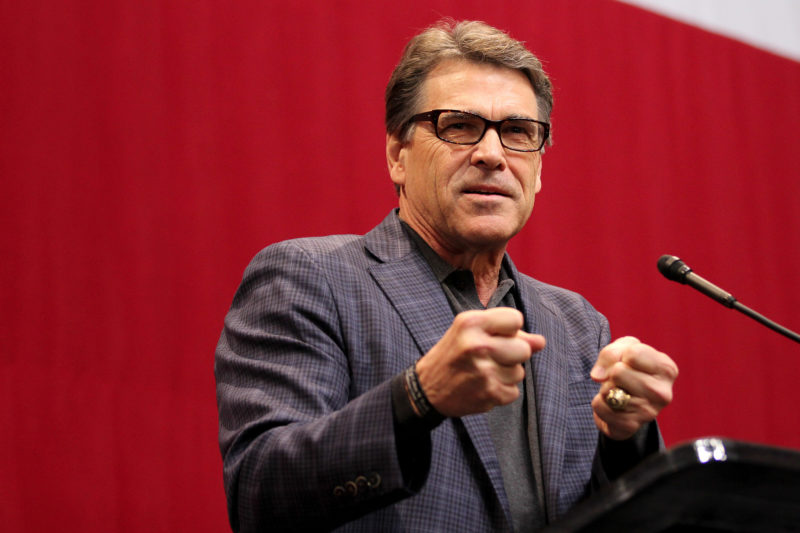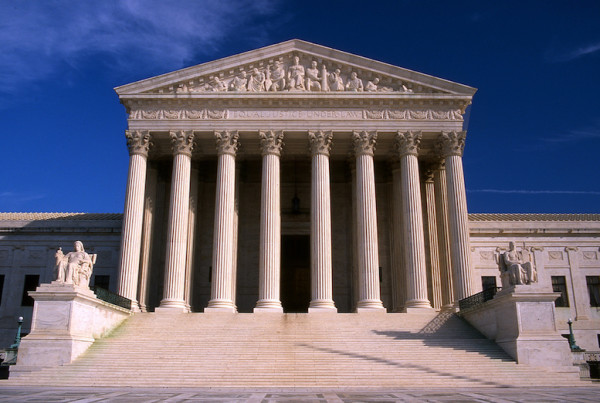Remember this moment?
“The third agency of government I would do away with – education, commerce, and let’s see … I can’t, the third one, I can’t. Sorry. Oops.”
Former Texas Gov. Rick Perry said that in 2011 debate. The agency’s name he forgot? The nation’s Department of Energy. Now President-elect Donald Trump has chosen the former Dancing with the Stars contender to run the department.
Texas is one of the country’s most important energy-producing states, and Perry governed it longer than anyone. Most of Perry’s energy-related decisions involved the oil and gas industry and investing in resources like wind power. But despite its name, the Department of Energy isn’t all oil and gas leases and wind turbines. It mostly deals with nuclear energy.
Peter Hartley, a professor at Rice University and researcher at the Baker Institute, says one of the department’s main functions is running all the national energy labs. The Federal Energy Regulatory Commission, which collects and publishes data on the energy industry, also falls under the energy department’s jurisdiction.
“It’s true in recent years that the Department of Energy has also been playing a bigger role in subsidizing different kinds of energy technologies,” Hartley says. “That’s been, I think, the more controversial part of its activities.”
The department not only provides oversight of nuclear power plants, it also regulates the nation’s nuclear defense arsenal.
“The Department of energy was formed out of prior organizations in the government that had been involved – going way back to the Manhattan Project that involved the first nuclear weapons,” Hartley says.
Hartley says popular opinion surrounding nuclear energy has changed in the past decade.
“We know that people were very enthusiastic about peaceful use of nuclear power in the early years,” Hartley says.
The Chernobyl and Fukushima nuclear accidents and concerns about nuclear waste and its proliferation all greatly increased regulations on nuclear power plants, Hartley says.
But going back to the “Oops moment,” when Perry said he’d close the Department of Energy for good – Hartley says he does have questions about whether the department is actually needed.
“I would argue what are the public policy issues connected with energy,” he says. “Some of them, of course, [are] environmental issues, but we have an environmental protection agency. … we have questions about new technology. But I would argue the main role of government there is to define its research into to basic, very basic technologies rather than to subsidize the deployment of existing technologies that can be done by the commercial sector.”
Hartley says the provision of the information about the industry may also be redundant and its oversight could be given to another agency.
“In terms of developing day-to-day production of energy, I think that’s best left to market forces,” he says.
Post by Beth Cortez-Neavel.
















